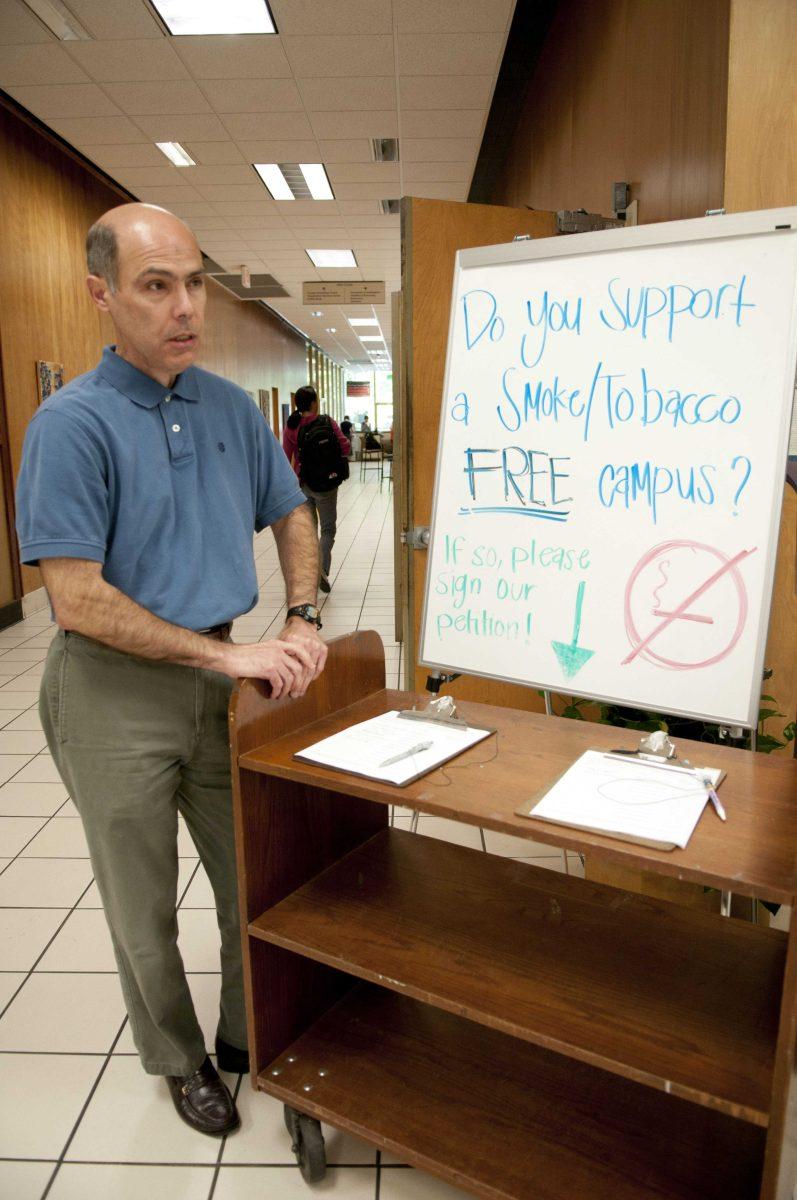A smoking ban on campus may sound like a good thing at first. As a non-smoker, I was initially intrigued as well. Who could argue against clean air, less litter and a healthier student population? Although these goals are indeed noble, an outright ban on smoking on campus is not the right way to proceed.
To start, the ban will not stop people from smoking.
This should be obvious to anyone even remotely familiar with the great lengths smokers will go to for a cigarette.
And unless the proposed ban also plans on somehow eliminating all stress on campus, the more than 7,000 students who smoke will want to light up while they are at school.
It’s a simple risk versus reward situation, and for an addict, the reward of a single cigarette will almost always outweigh the risk of getting caught.
So the question is not if smokers will smoke, it’s where smokers will smoke.
If the ban isn’t well-enforced, students will continue to smoke on campus. And if the ban on smoking takes the campus ashtrays away — which I don’t see why it wouldn’t — all those cigarettes are now going on the ground or in a normal trash can.
If the ban is well-enforced on campus, smokers will simply walk off campus or to their cars to smoke. Unless the surrounding areas provide ashtrays, smokers will throw their butts on the ground and in trash cans there as well.
Either way, the ban’s ultimate effect would be giving smokers the choice between littering and risking negligent arson.
This ban makes the same mistake made by schools who teach abstinence instead of sex education: it hopes for the best while ignoring the reality. Pushing for a smoke free campus isn’t a bad thing in itself, but ignoring the power of a nicotine addiction will cause this ban to fail and is a naïve mistake for the state legislature.
In addition to being ineffective at best, the ban is not even seated on solid science.
Smoking has already been banned statewide in restaurants and non-hospitality workplaces. Some may see a ban on smoking on campus as a logical step forward.
But while the effects of secondhand indoors are very well understood as harmful, studies on effects of secondhand smoke outdoors are almost non-existent.
Judith Sylvester, an associate professor with the University, submitted information to the state legislature about the effects of smoking on campus while they were debating the ban.
Despite being quite knowledgeable on the effects of secondhand smoke indoors, Sylvester could not provide any studies on secondhand smoke outdoors, stating that, “I don’t know for sure about a specific study for outdoors.”
So in addition to being an all-around ineffectual plan, the ban is not even based on any sort of fact. How could a legislature vote for such a thing?
It’s a classic case of tyranny of the majority. Fueled by the fact that non-smokers are the majority, our representation has been able to stifle the interests of smokers so much that it has become oppression.
So, in exchange for a chance at a potential increase in air quality, the population has become willing to criminalize the behavior of a full quarter of our population.
Robert Klare is a 22-year-old engineering senior from New Orleans.





